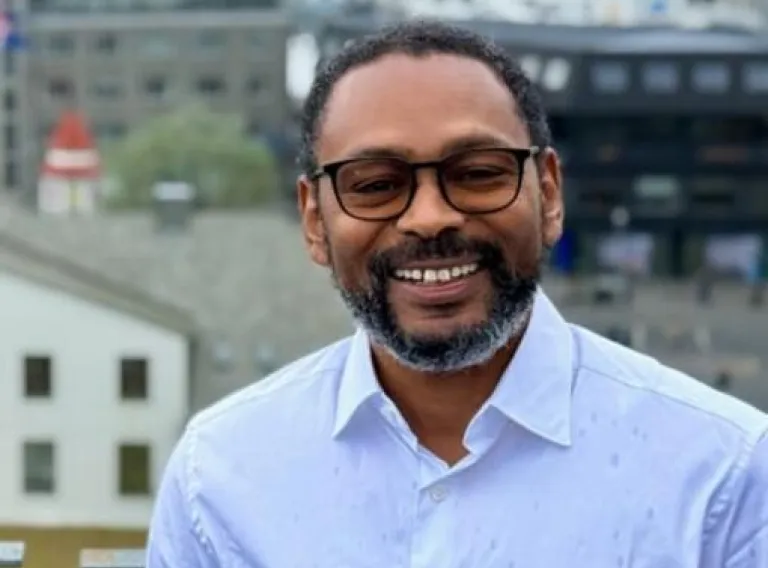Aðalbygging
Ceremonial hall
Hamadou Boiro will defend his doctoral thesis "Trafficking is a heavy word": Quranic education for knowledge, liberation and power in Guinea-Bissau on Monday, 27 October. The defence ceremony will be chaired by Professor Unnur Dís Skaptadóttir from the Faculty of Sociology, Anthropology and Folkloristics and will take place in the Ceremonial Hall (Hátíðasalur) at the University of Iceland. The proceedings begin at 13:00 and are open to the public.
The examining committee comprises Dr. Mirjam de Bruijn, Professor of Anthropology at Leiden University, The Netherlands, and Dr. Anneke Newman, Senior Postdoctoral Fellow in the Department of Conflict and Development Studies at the University of Ghent, Belgium, who will serve as external opponents. The thesis was supervised by Professor Emerita Jónína Einarsdóttir from the University of Iceland. Additional doctoral committee members include Dr. Kristín Loftsdóttir, Professor at the University of Iceland, and Dr. Neil Howard, Reader at the University of Bath, UK.
Abstract:
This thesis investigates Bissau-Guinean Fulbe boys sent to Quranic schools in neighbouring Senegal, a practice labelled as child trafficking by international agencies and non-governmental organisations (NGOs) due to the boys’ begging. The research questions global anti-trafficking labels and explores how these clash with local religious and social meanings. Ethnographic fieldwork in 2009–2020 included observation, interviews, and focus groups with Quranic teachers, boys studying the Quran, parents, and community members. The findings refute international narratives framing the religious education of Bissau-Guinean Fulbe boys in Senegal as poverty-driven or uninformed. For Fulbe, especially the Djiahabe families, Quranic education is a strategic pursuit of social mobility and liberation. Religious knowledge empowers marginalised groups while begging and almsgiving remain reciprocal, culturally significant practices. Anti-trafficking measures and repatriation of the boys from Senegal back to their villages in Guinea-Bissau disrupt their communities and fuel stigma while serving diverse interests, including NGO funding and seasonal travel logistics. Integrating decolonial and power theories, the study highlights the limitations of Western-centric, legalistic protection measures and calls for context-sensitive, respectful engagement with local actors and educational practices.
Background:
Hamadou Boiro has an MA degree (1999) and DEA (2000) in social anthropology from Université Cheikh Anta Diop, Dakar, Senegal. Beyond the research for the PhD thesis, he has an extensive research experience on the Casamance conflict in Senegal, conflict management, infectious diseases (HIV/AIDS, cholera, Ebola, Covid-19), gender equality, gender-based violence, male circumcision, children’s situation and violent religious extremism. Hamadou Boiro has worked for the World Health Organisation (WHO) as a social scientist in the Ebola epidemics in West Africa in 2015 and the Democratic Republic of Congo (DRC) in 2018–2020, and in the COVID-19 pandemic response in Guinea-Bissau and as responsible for the COVID-19 Risk Communication and Community Engagement (RCCE) team at the Regional Office of WHO for Africa in Brazzaville, the Republic of Congo. He has also worked for the WHO in Angola and Mozambique, and UNICEF and the European Union in Guinea-Bissau. His wife is Kelly Lopes, and they have two daughters, Nayra Ude and Ayanna Rasheeda. Hamadou Boiro works now as a researcher at the National Institute of Study and Research (INEP), Bissau, Guinea-Bissau.

Share
Buses 14, 1, 6, 3 and 12 stop at the University of Iceland in Vatnsmýri. Buses 11 and 15 also stop nearby. Let's travel in an ecological way!
